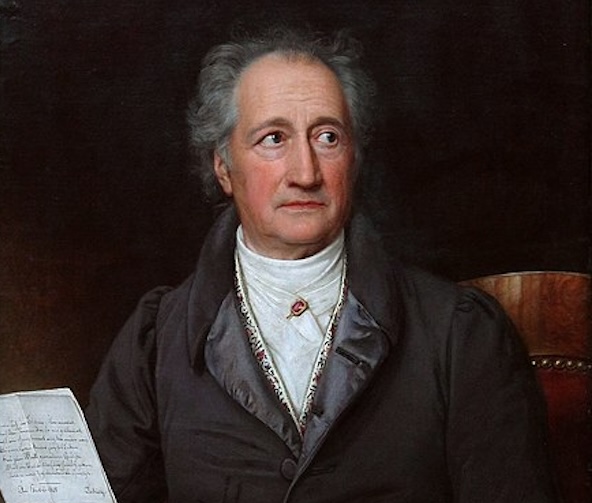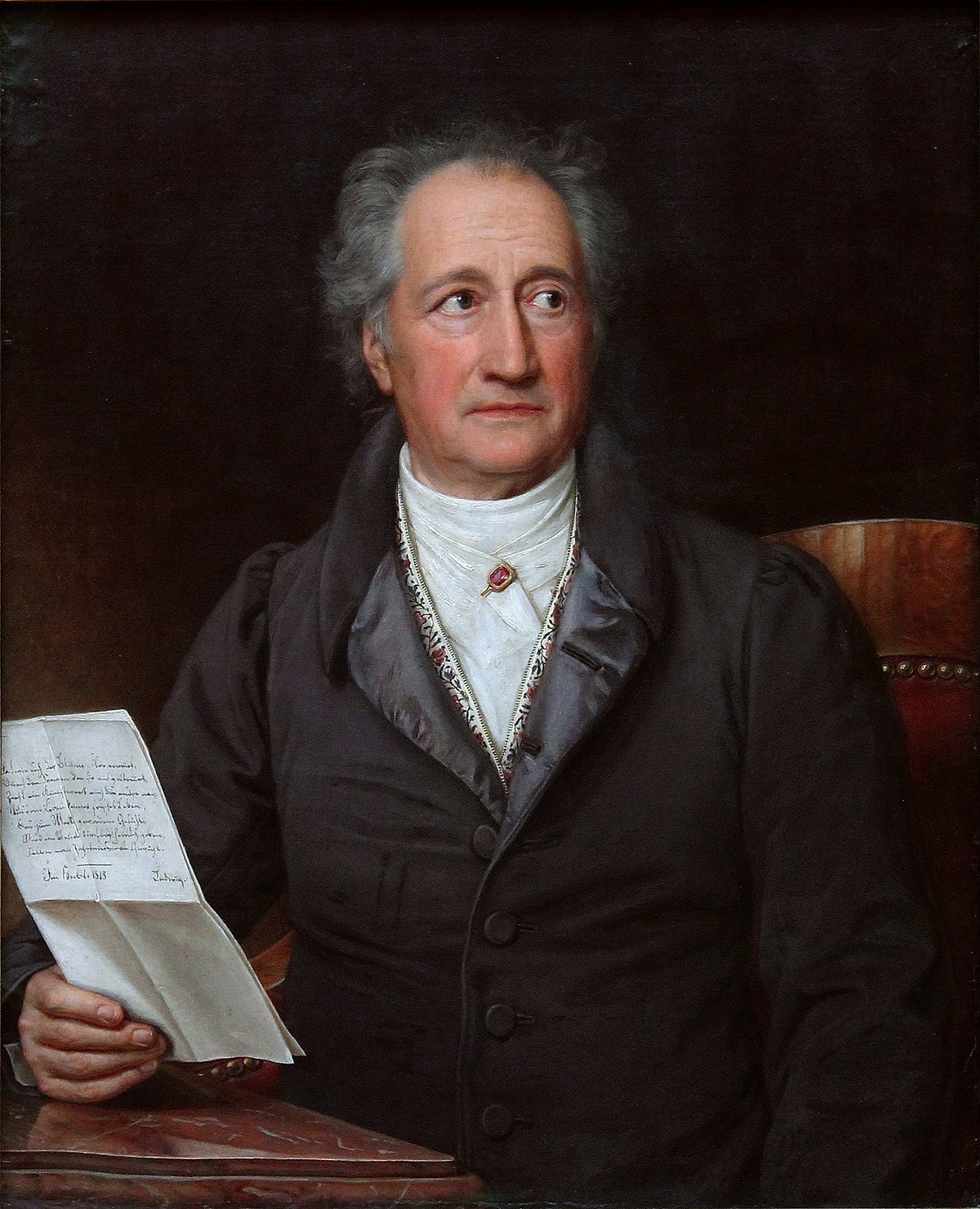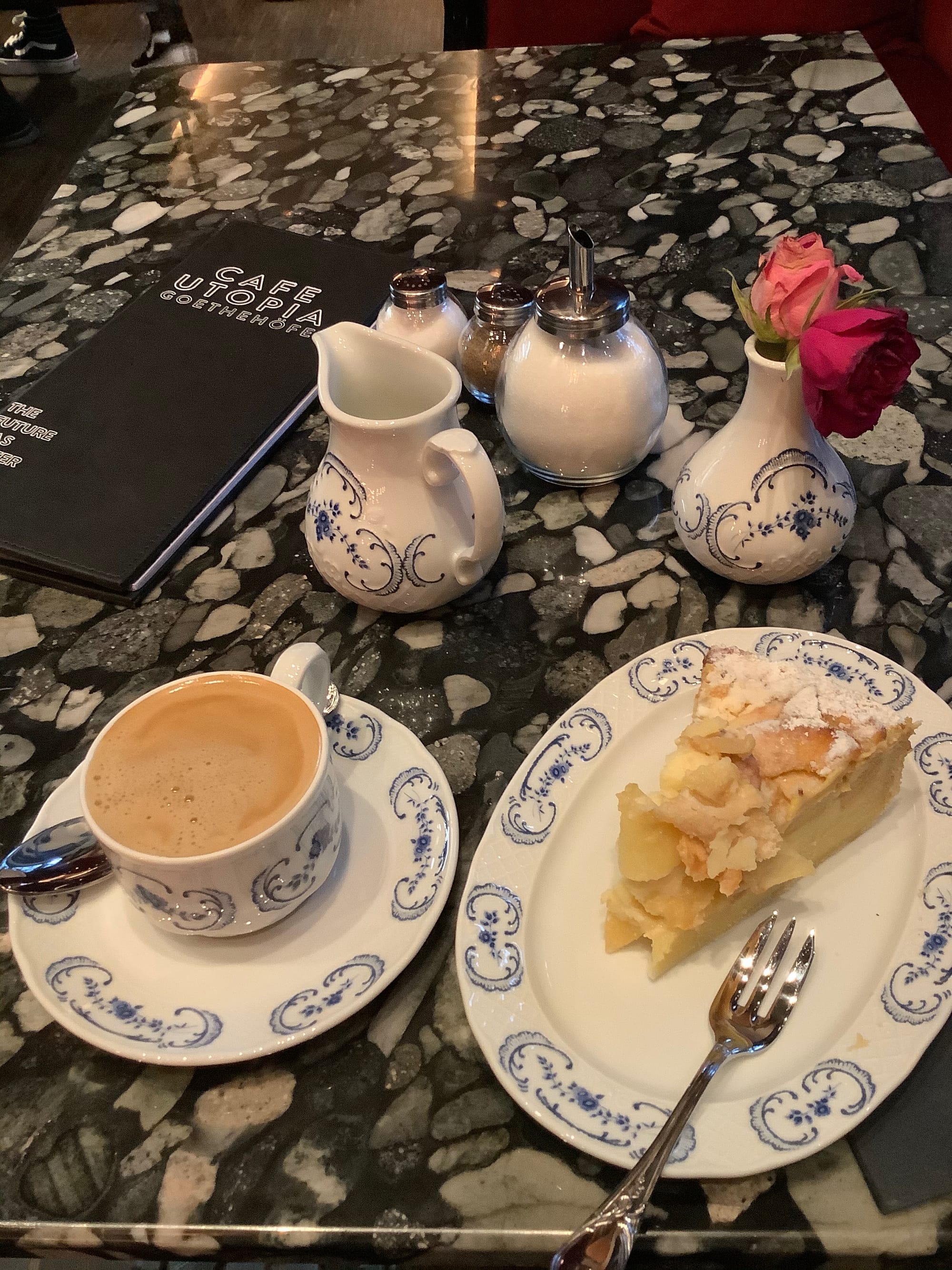Das Goethe-Haus
Frankfurt-am-Main, Germany.
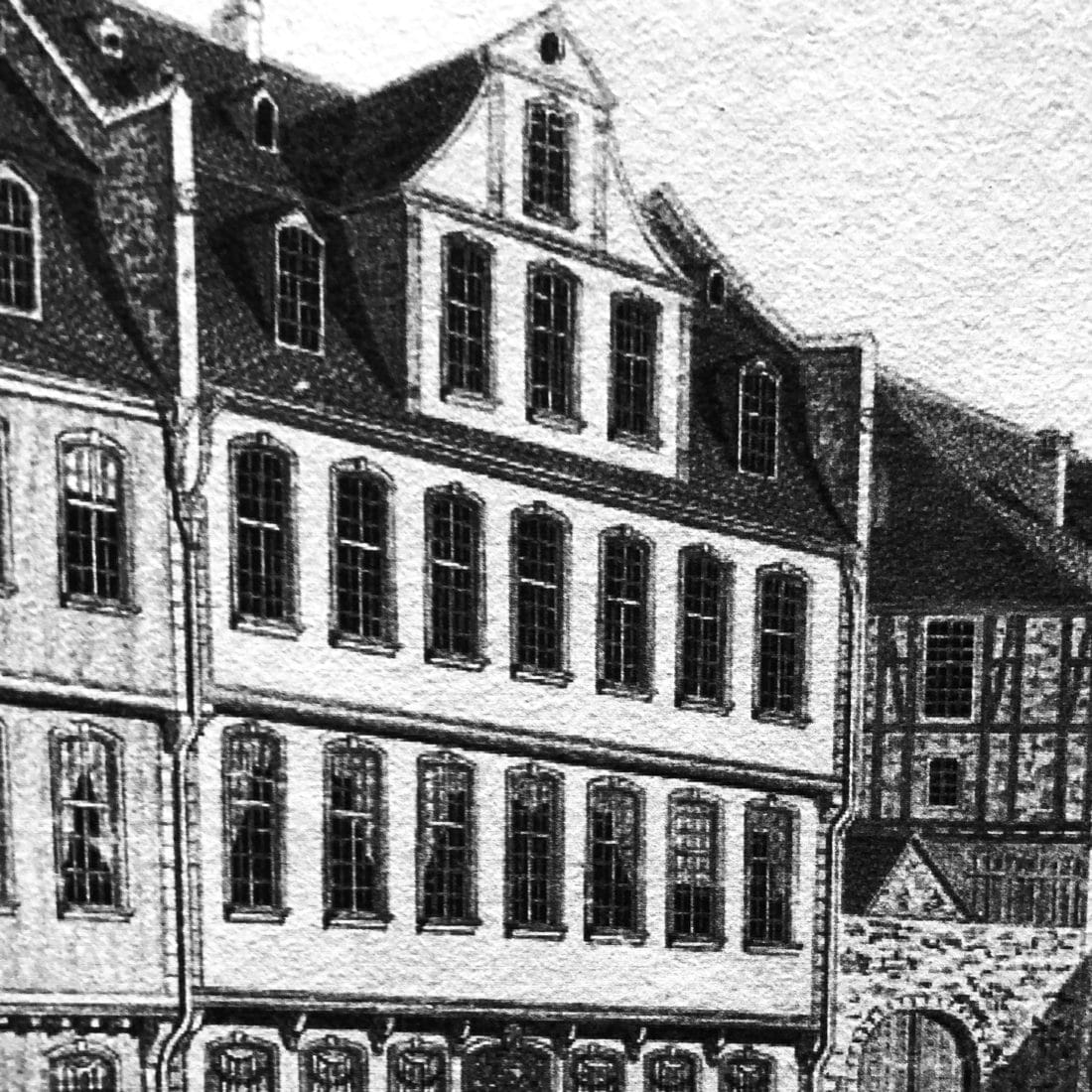
I learned the German language from my teacher, Annelies Clauson, in high school. She was a teacher of great renown in my home town, having singlehandedly created an exchange program that brought more than 1000 German and American kids into each other’s homes, schools and lives.
More than the language alone, Frau Clauson imparted an appreciation for German and European culture. In our senior year Frau Clauson plunged us into a panoramic tour of European history, art, music, architecture and literature from Roman to modern times. Her lectures were delivered in German and to this day there are some architectural terms I know only in that language. The whole experience was an eye-opening window into the greater world for a suburban American teenager.
My appreciation for her introduction to European history and culture has deepened over time. It gave me scaffolding on which to build my experiences while traveling and to forge deeper understanding from what I read, heard and saw while visiting museums and concerts, reading a good book, or meeting new people.
Johann Wolfgang von Goethe isn’t well known in the US. In Germany, his works have the broad renown of a Shakespeare or Charles Dickens found in the anglophone world. German schoolchildren memorize his poems, his quotations are on everyone’s tongue, and his original thoughts are a substrate in casual discourse. In the US we might know the story of The Sorcerer’s Apprentice or Faust, without being conscious of the source.
Sometime in the 1980’s a German friend gave me at cassette recording by an actor reciting a narrative about Goethe’s life, interspersed with his poems. The performer was Lutz Görner. The perfect diction and beautiful cadence of the readings, Görner’s resonant and expressive voice were completely captivating, to say nothing of the poems by Goethe and the fascinating story of his life. I listened to that cassette hours and hours and ended up memorizing several of the poems, in the course of which I vastly improved my pronunciation of German, too.
I am saddened to see Lutz Görner is no longer with us. We can still find a version of the Goethe recitation (see below), and there are many other recordings of Görner.
For a non-native reader, Goethe’s poems deliver a double pleasure when read in German. One can first marvel at the condensed streams of human emotion made confluent by so keen a hand. And then marvel at the dense delivery marshaled by the language itself.
Breitest über mein Gefild
Lindernd deinen Blick
Wie des Freundes Auge mild
Über mein Geschick.
How to cast that in English? How to achieve the balance and economy, the nuanced associations and plunging depth?
The story of Goethe’s life can be found everywhere. Read it to begin an appreciation for this dazzling flower of the Enlightenment. Goethe’s childhood home can still be visited in Frankfurt, as well as his later home in Weimar.
Thank you again, Frau Clauson. You opened these doors for me.
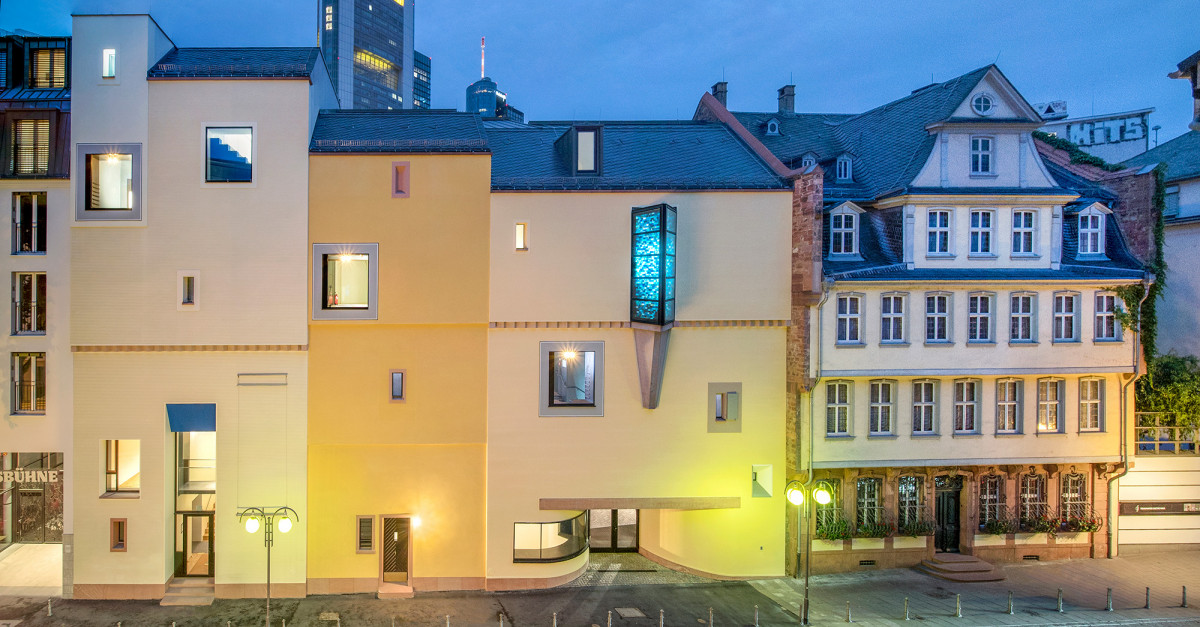
Goethe's childhood home in Frankfurt.
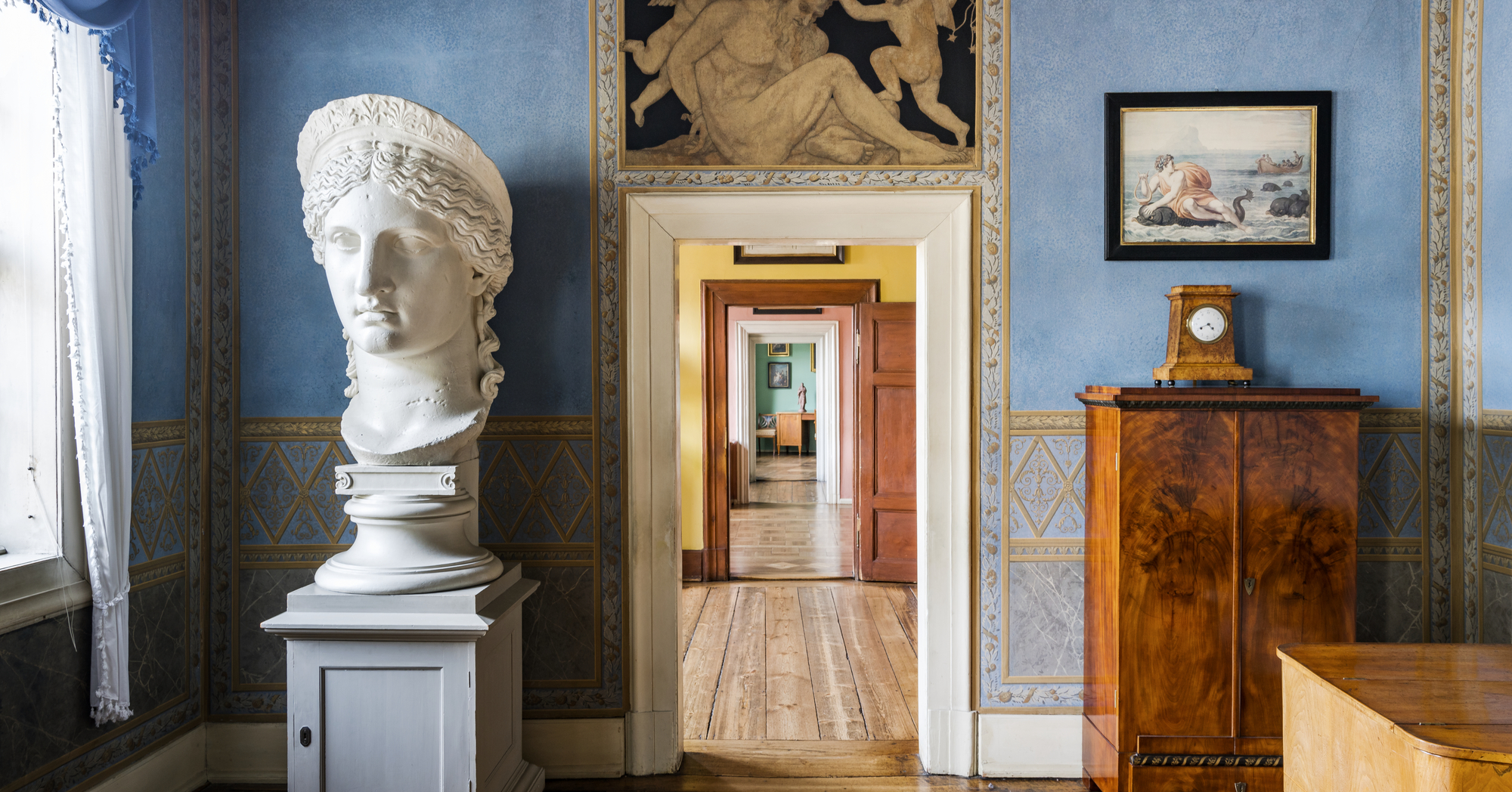
Goethe's later home in Weimar.
Here are some additional resources:

